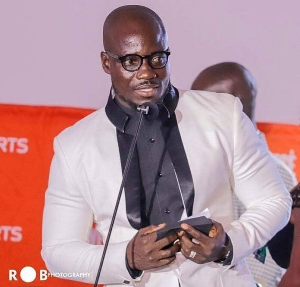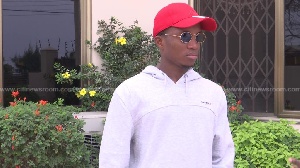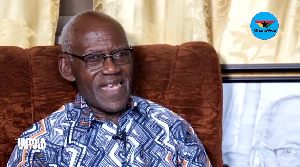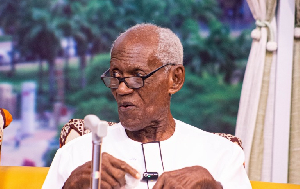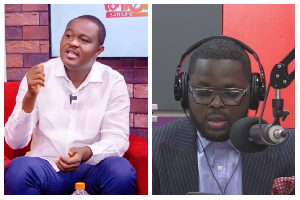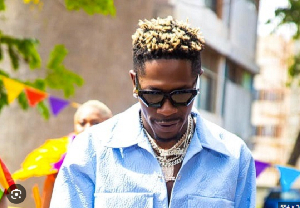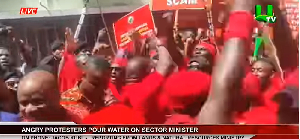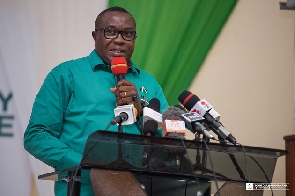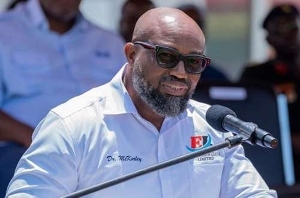Accra (Greater Accra) 4th May ?99
As they trooped into the premises of the Ghana International Press Centre in Accra on Monday to celebrate World Press Freedom Day, journalists heard whispers of aliases given to them: "members of the inky fraternity, members of the press, the watchdogs of society", reports Juliet Adime Amoah.
The World Press Freedom day, a relatively new event introduced six years ago by the United Nations and observed on May 3 every year, had for its global theme "Unpunished Crimes against Journalists".
The Ghana Journalists Association however tailored the theme for the celebration of the day in Ghana to read: "GJA, Press Freedom and political stability".
Mr John Mahama, Minister of Communications, urged media practitioners not to allow their prejudices to affect fair reporting of events in Africa, pointing out that a bad piece of journalism may impact negatively on its fragile democracy.
Progress in entrenching democratic principles all over Africa is on-going and journalists have a role to play in its success, the Minister noted.
At a flag raising ceremony to mark the last World Press Freedom Day for this century, Mr Mahama said the continued pockets of ethnic conflicts and violence going on in the West African sub-region demand that journalists exercise circumspection in the discharge of their duties in order to ensure peace on the continent.
He thanked the media for heeding to his call to minimise discussion on the ban on drumming by the Ga Traditional Council which was becoming heated as a result of radio discussions.
The Minister explained that the government had nothing to do with the placement of advertisements in private newspapers and has not blacklisted any private newspaper.
Reacting to a statement in the Free Press, claiming that the government had told its agencies not to place advertisements in the private media, Mr Mahama said if any newspaper was facing problems with getting adverts, it may be on account of the insults rained by the paper on a section of the public.
A joint statement issued by Mr Kofi Annan, UN Secretary-General and other heads of UN agencies read by Mr Bruno Lefevre, UNESCO Resident Representative in Ghana, appealed to all governments to guarantee the safety of journalists.
It said each time a journalist is attacked or killed, society at large suffers.
The statement questioned the arguments of those who claim that press freedom threatens stability and endangers progress, and said freedom of speech is a right to be fought for.
It noted that the century had been marked by ceaseless struggles for press freedom and the continued targeting of journalists cannot be tolerated.
"As we prepare to enter a new century and millennium, a thriving local, national and international free press is more important than ever."
Miss Margaret Novicki, Director of the UN Information Centre in Accra, gave a list of some journalists who had been murdered in various countries, including Norbert Zongo of Burkina Faso and said "we cannot be complacent about these events because they indicate a trend towards an erosion of press freedom."
"We, in the United Nations are opposed to all or any attempts to shackle or silence the press."
Mr Tim Acquah-Hayford, Chairman of the National Media Commission, noted that "we are now in an era of a less tense media landscape yet we are at a crossroad for responsible freedom or a decline in public esteem."
Nii Laryea Sowah, General Secretary of the Private Newspaper Publishers Association of Ghana, said about 21 out of 68 newspapers which blossomed in 1992 have folded up because of weak capitalisation and lack of adverts.
Mrs. Gifty Affenyi-Dadzie, President of GJA, said no democratic society can exist without a pluralistic press and called for tolerance to make press freedom a reality.
She called for investigation of the deaths of journalists in Kosovo, Yugoslavia and Burkina Faso and called on NATO to halt attacks on media installation in Yugoslavia.

